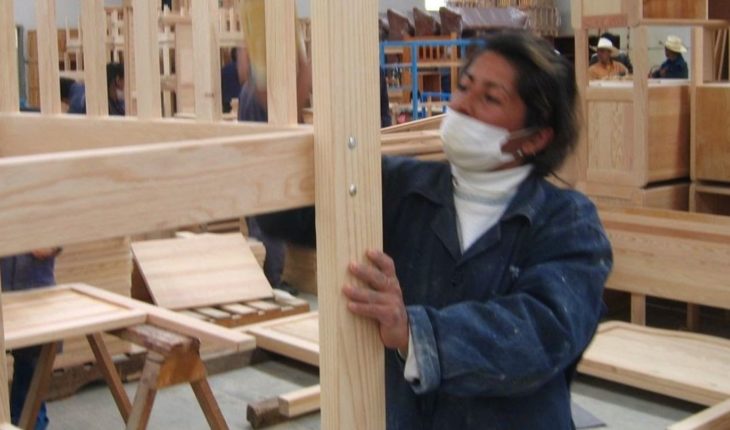data emerging from the report of the Observatory of the Argentina Federation of the timber industry and Allied (FAIMA), based on the index of Industrial production (IPI) of the INDEC and own surveys, showing that there was a contraction in 2018 11.5% in the industry of furniture and about 9% for the production of wood and furniture.
Explanation of such scenario comes from the fall in consumption, showing a deterioration that deepened in the last months of the year. The furniture industry shrank 37.5% year on year in December, while that of wood and articles thereof 16.7%. According to estimates of the Observatory FAIMA, the level of production with which the
sector closed 2018 is 12% less than the year 2015.
When we compare the current situation with the recession experienced in 2016 out an alarming fact that emphasizes the report: the current crisis has a strong impact on employment. 30% of the companies surveyed said that you decreased its staffing. This data corresponds to the under-use of installed capacity that shows the step on the field, with the consequential suspeciones and dismissals.
Balances and perspectives of the companies final data from the annual survey of the Observatory show that 74% of companies points out that their production dropped by 2018. The 72% expressed that their sales fell and 44 per cent expected the situation to worsen in 2019.
These indicators are verified in the opinion of the companies. Final data from the annual survey of the FAIMA Observatory show that 74% of companies points out that their production dropped in 2018 pic.twitter.com/Cb6A76SXpM – FAIMA (@FAIMAargentina) February 11, 2019 according to the annual survey of the Observat Orio 80% of the companies in the sector does not believe that the situation would improve in 2019.
Measures to survive the crisis, the sharp rise in costs for the increase in rates, coupled with the fall in domestic consumption plummeting, let profitability below the minimum threshold. Tiered interest rates add record and dolarizados supplies hindering even more the situation of the companies. In this sense, they are in a State of survival where end up liquidating stocks can for short-term financial holes. Unsustainable situation at the time and where required measures to solve the emergency scenario. Measures that demand from FAIMA: advancement to the furniture sector of the instrument of the tax reform that allows the possibility to deduct 100% of the non-taxable minimum employer contributions.
Relaunch of the line of credit for productive investment (LCIP)
to mitigate the serious problem of SME financing in the current context of
as high interest rates.
Regulate formed Bill, part of the sanctioned
production financing law, so that all sectors can access this
financing instrument.
Credit demand, the revision of programmes
in the form now 12 rates can be lower cost and accessible products.
Suspension for 180 days from the application of the scoring in plans of AFIP,
extension to 60 installments of facilities plans and extension of its term
to debts incurred to December 2018.
In this article:





